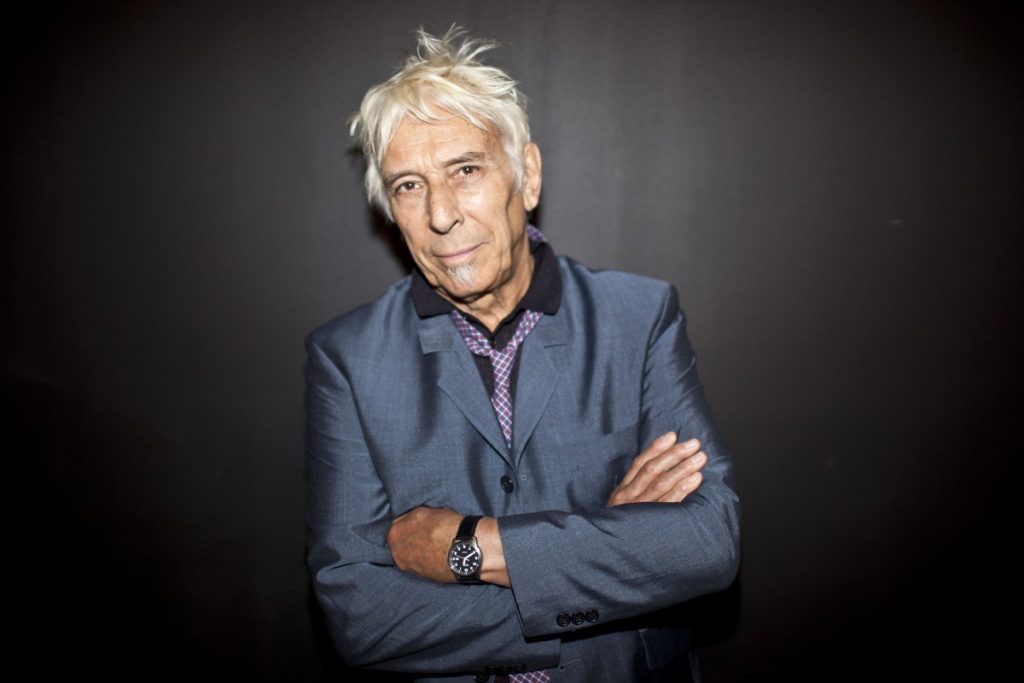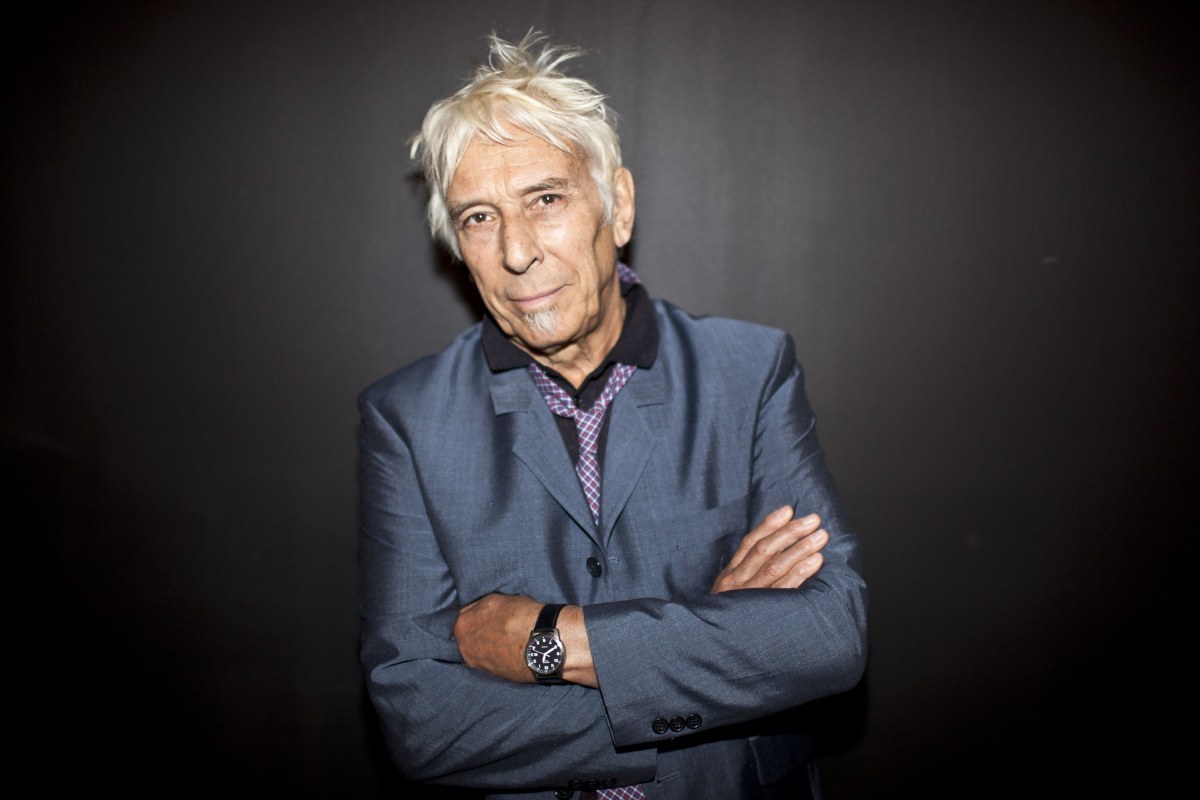
If John Cale’s new album M:FANS sounds hauntingly familiar, you are both correct and obviously a Cale aficionado. The legendary Velvet Underground viola player and composer—with a solo career that’s lasted since 1970—recorded 1982’s Music For A New Society at an ebb in his personal life (read What’s Welsh For Zen: The Autobiography Of John Cale to see how bad). That hard druggy existence spilled over to the scarred, blood-lustful characters who roam sad songs such as “Chinese Envoy” for a most chilling effect—that’s saying something considering vicious Cale albums such as Fear and Slow Dazzle. Healed, but restless, Cale ducked backward in 2015 to move forward with both a remastered reissue of the old Society and 2016’s reimagined new version that borrows the bad feelings without wallowing in them.
Not to start on a bummer note, but when I first heard about the Paris tragedy at the Bataclan in November, I thought of you, Nico, Lou and your show there in 1972. You guys put the club on the map. Do you have any recollection of the space or the spirit of the night?
It was a very tender night—lots of walking on eggshells because we hadn’t worked together since I left the band. I thought it was an interesting idea, though. Lou didn’t really want to do anything with me. I was there with Nico, helping her—it all just happened. It was fine. Serendipitous. All made sense somehow. That said, that didn’t loom large in my legend then—reuniting with Lou—but I guess in a way it needed to happen, just to see where things stood. That said, I didn’t want to be reminded of it by what happened in Paris.
There are two recently released boxed sets out—Loaded and The Complete Matrix Tapes—neither featuring your Velvets. Did you have much of a chance then to consider what VU sounded like without you?
I had my own issues to deal with at the time that were pressing. I knew they were there, but I can’t say that I focused on them. I devoted so much time to the Velvets—it was my job—and all of a sudden, I had this opportunity to stretch my imagination on my own and become a producer, which I wanted to be, as well as do my solo stuff. So, when all that went down with the band, it was easier for me to just wipe the slate clean and get on with things, with my work. That was the first thing on my mind, not the Velvets.
Dozens of solo albums behind you—how did you wind up picking Music For A New Society to re-release and re-record?
The longer an album of mine is around, the more people would ask me to do stuff from it live, which I’d been doing already with songs such as “Taking Your Life In Your Hands” and “I Keep A Close Watch.” Promoters in Europe, however, love those single-album shows that I performed for the likes of Fear, Paris 1919 and eventually Music For A New Society. I got to dress the songs up differently—its arrangements and, suddenly, its songs made new sense. I wanted to hear them again—and some I did not, since that time was stressful enough. I digitized reel-to-reels and found things I never finished, and began thinking of new versions that would take the strengths and frustrations of the old album and put them in a contemporary context.
Going back to a bad moment couldn’t have been fun.
Yeah, well, I wanted something that wasn’t quite as exposed and raw as Music, but still had that emotion. So, I dressed them in different clothing.
New clothing that resembles, in part, what you did with your most recent album—2012’s Shifty Adventures In Nookie Wood—and its collage electronica. Was that difficult at all, as Music For A New Society was future-forward-sounding, but much sparser?
Some is just readdressing the lyrics. Others have ideas that I wanted to use to make existing songs grow. I took a lot of what was there in the first place—accepted it—but drove it further.
Whether you knew some of the people or not that populate M:FANS and Society, they’re a grotty lot. Does each character have or get redemption in the end? Is that a reason behind M:FANS?
I don’t want to leave any character hanging in mid-air, even though there is usefulness in that. The redemption comes from the character, what he is telling you about himself.
Where was your head in 1981 and ’82 that resulted in the original?
It was not in a good place. The personal side of things? There was a lot of grinding going on. You can see those attitudes in spades within the original. I knew that I had to get out of where I was, away from the people that were around then. You hear that in “Taking Your Life In Your Hands.” I was thinking of those old songs when Lou passed, you know. That threw in a spanner into the works, but it also helped me rediscover a moment. “If You Were Still Around,” for instance—written then—had all the elements that any tribute that I’d pay to Lou would have.
I wasn’t going to ask about Reed, but you brought him up. Why do you think—considering the original amount of time you spent together and how long ago that was—you’re still so tied to each other?
Whatever the work was—that was the driving force. That was why I came to New York City and America in the first place: to collaborate, to work with someone. There was the work with (early avant-garde composer) La Monte Young, obviously, but then in the middle of that, I realized what I was missing was my teenage years. The Beatles arrived, so it was in my face. All of a sudden, I meet Lou and I’m thinking, “Here’s somebody who can improvise.” From there, I wondered how could we stick within the realm of the avant-garde and have it thrive there in some new ferocious way. In the ’60s, we were graduating, coming out of where we were into what was next and pushing something new.
You still have that as your principal guiding force.
Yes, I’m still that guy thinking what is next. Once you’ve done something like the VU—well, we knew that it was going to bother people, that the audience would have to face it wherever they may go.
—A.D. Amorosi







